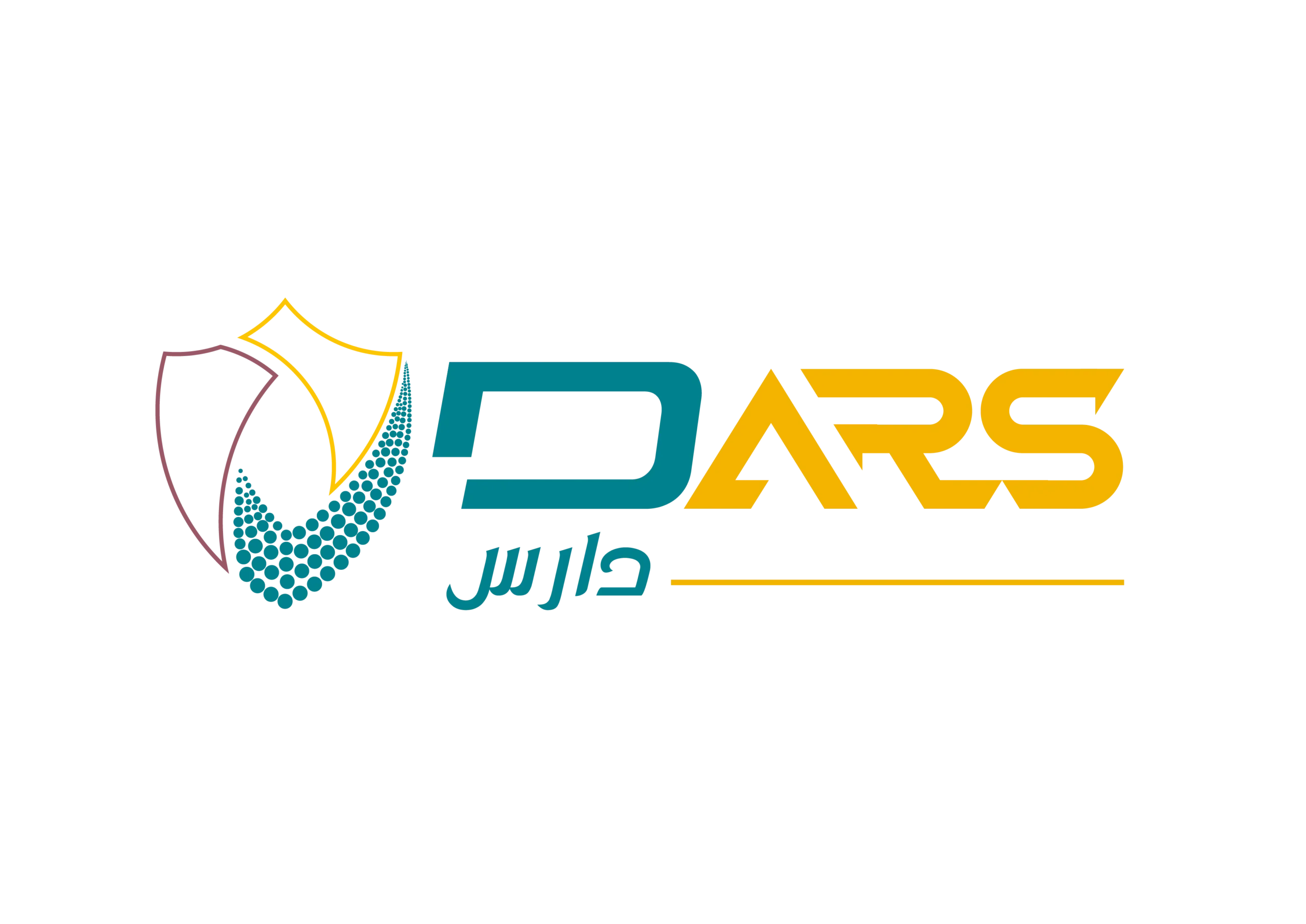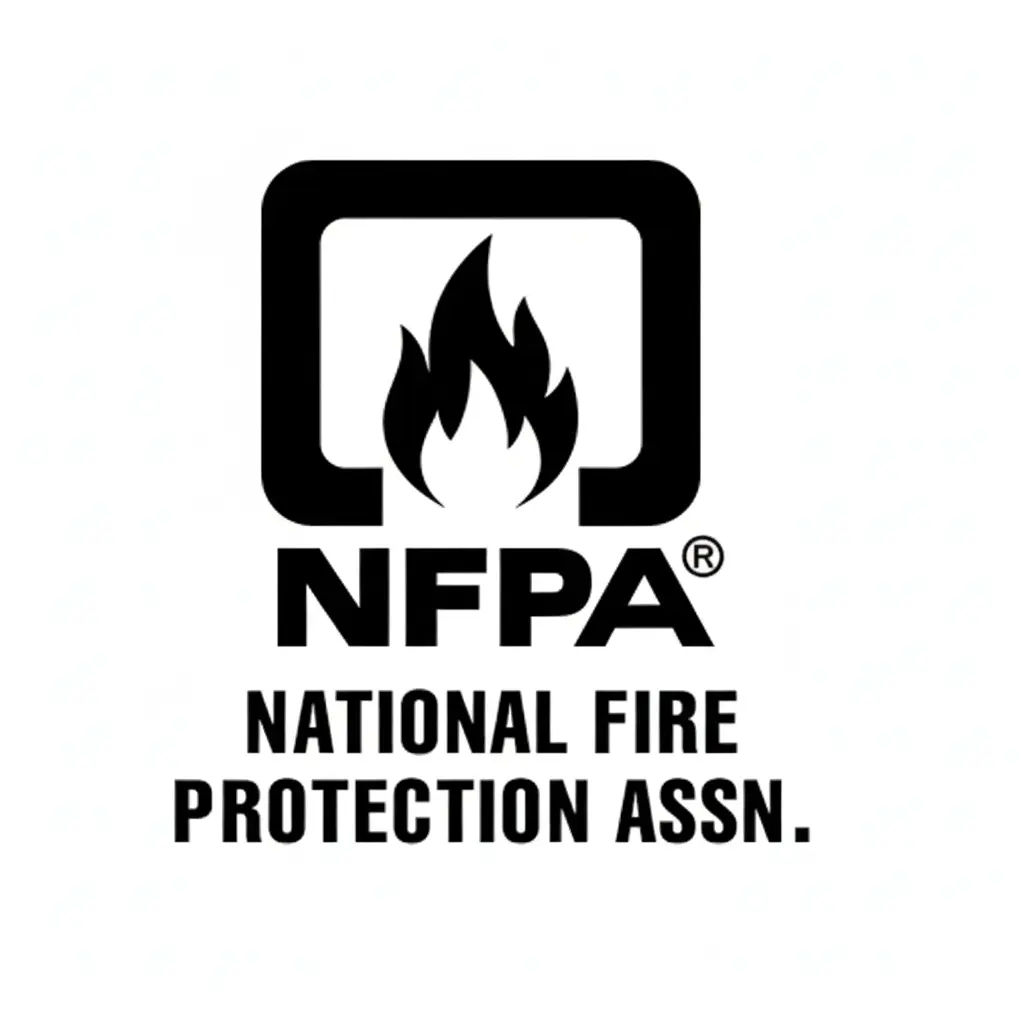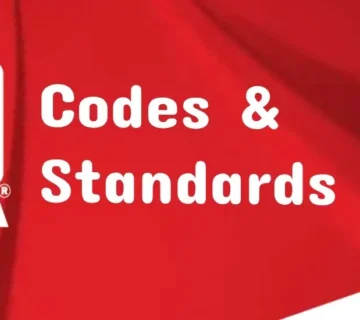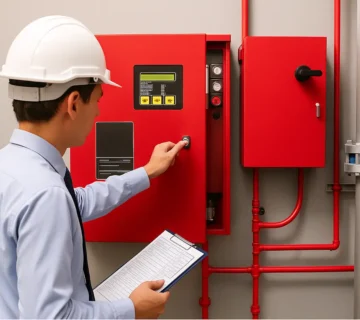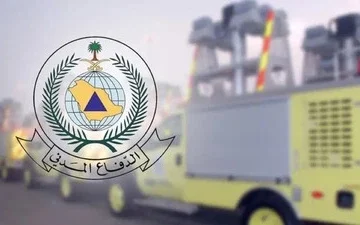Introduction
In the world of fire safety, few acronyms hold as much weight as NFPA. Short for the National Fire Protection Association, this global authority sets the tone for how industries, governments, and professionals protect lives and property from fire hazards. Understanding the NFPA meaning is crucial not only for engineers and safety consultants but also for every business owner responsible for compliance and safety.
In Saudi Arabia, where rapid urban development and industrial expansion are key pillars of Vision 2030, the importance of NFPA standards has grown significantly. From fire protection systems in skyscrapers to civil defense compliance in mega projects, these codes are the foundation of safe and sustainable infrastructure.
This article explores the true meaning of NFPA, how its standards influence fire safety regulations in Saudi Arabia, and why they are indispensable for every sector aiming to meet international benchmarks and safeguard communities.
What Is the NFPA and What Does It Do?
The National Fire Protection Association (NFPA) is a U.S.-based nonprofit organization founded in 1896. Its mission is to eliminate death, injury, property, and economic loss due to fire, electrical, and related hazards. Over the years, the NFPA has developed more than 300 codes and standards that shape fire safety practices worldwide.
These include the well-known NFPA 101 Life Safety Code, NFPA 13 Sprinkler System Standard, and NFPA 72 Fire Alarm Code, among many others. Each one plays a vital role in defining how buildings are constructed, systems are installed, and people are protected. According to the NFPA official site, these standards are continually updated through collaboration with experts, ensuring they evolve alongside technology and real-world challenges.
From high-rise towers in Riyadh to industrial complexes in Jubail, NFPA’s influence is visible across the Kingdom. Saudi Arabia’s growing commitment to fire safety standards aligns with global best practices, where NFPA acts as a guiding framework for both new developments and retrofitting older structures.
The Global Impact of NFPA Codes
NFPA’s reach extends beyond American borders. Today, its standards are recognized in over 180 countries, serving as a reference point for safety regulators and contractors worldwide. In many regions including the Gulf local fire codes integrate or mirror NFPA provisions.
For instance, the NFPA 70 (National Electrical Code) ensures safe electrical installations, reducing fire risks caused by faulty wiring, while NFPA 30 governs flammable liquids management. Each of these standards contributes to a broader safety ecosystem that prioritizes prevention, detection, and effective response.
The NFPA’s Fire and Life Safety Ecosystem model also highlights the interconnectedness between government policies, enforcement mechanisms, and public awareness. It emphasizes that true safety is a shared responsibility among all stakeholders engineers, regulators, and citizens alike.
What Are the Key NFPA Codes Relevant to Saudi Arabia?
Saudi Arabia’s fire safety regulations reference several NFPA standards to maintain international compliance. Here are a few that hold particular importance:
NFPA 101 – Life Safety Code
This is one of the most widely used standards in the Kingdom. It sets requirements for building design, construction, and occupancy to ensure safe evacuation during emergencies. Saudi Fire Rated Doors explains how this code impacts door integrity and compartmentalization, ensuring that fire-rated barriers can resist heat and smoke long enough to protect lives.
NFPA 13 – Standard for Sprinkler Systems
This standard governs the design and installation of sprinkler systems. In Saudi Arabia, compliance with NFPA 13 is often mandatory in commercial buildings, hospitals, and educational institutions. It ensures that fire protection systems are properly designed for the building’s layout and occupancy type.
NFPA 72 – Fire Alarm and Signaling Systems
NFPA 72 provides detailed guidelines for alarm systems, notification protocols, and signal pathways. It ensures that all occupants are alerted in time, and that response teams can act swiftly to contain hazards.
Beyond these, NFPA codes related to industrial safety standards like NFPA 30 (flammable liquids), NFPA 25 (inspection and maintenance of water-based systems), and NFPA 70E (electrical safety) are increasingly referenced in Saudi building safety guidelines and inspection frameworks.
NFPA and Saudi Arabia: A Growing Partnership
Over the past decade, NFPA has strengthened its collaboration with Saudi entities through strategic partnerships and joint initiatives. One notable example is the MoU between NFPA and MODON, the Saudi Authority for Industrial Cities and Technology Zones. This partnership aims to enhance industrial safety standards, promote training, and modernize fire protection strategies across industrial zones.
Similarly, NFPA’s agreement with DACO (Dammam Airports Company) focuses on aviation fire safety. It includes capacity building, auditing frameworks, and NFPA certification programs tailored for airport personnel and emergency response teams.
Such collaborations demonstrate how Saudi Arabia is not just adopting NFPA standards, it’s actively working with the organization to localize and expand its application.
NFPA in Saudi Events and Knowledge Platforms
The NFPA’s presence at Intersec Saudi Arabia highlights its commitment to fostering dialogue around safety and innovation. Through workshops and panels, NFPA experts educate local professionals about emerging trends, such as electric vehicle (EV) fire safety, smart sensors, and data-driven fire prevention measures.
At these events, NFPA also underscores its alignment with Saudi Vision 2030, which emphasizes sustainable urbanization and infrastructure safety. By integrating NFPA codes into national standards, Saudi Arabia is not just following global best practices, it’s setting new benchmarks for regional safety leadership.
The Relevance of NFPA in Saudi Arabia’s Construction Sector
In construction, the NFPA meaning goes beyond theoretical standards; it becomes a foundation for trust, safety, and quality. Every design decision, from ventilation systems to fire exits, is influenced by NFPA benchmarks.
For example, the NFPA 5000 Building Construction and Safety Code ensures that architectural designs prioritize evacuation routes, material fire resistance, and emergency preparedness systems. This is especially critical in high-rise developments like NEOM and The Line, where advanced fire protection systems integrate automation and IoT technologies to monitor and control potential hazards.
Contractors and consultants who adhere to NFPA standards often gain a competitive advantage in tenders and government projects, as compliance signifies credibility and a commitment to excellence.
The Role of Civil Defense in Enforcing NFPA Standards
Saudi Arabia’s Civil Defense plays a pivotal role in ensuring that all safety systems align with both national codes and NFPA standards. Every building project undergoes rigorous review and inspection for civil defense compliance, covering aspects like sprinkler design, fire alarm connectivity, and evacuation route planning.
These inspections aren’t mere formalities; they save lives. By holding businesses accountable to fire safety standards, Civil Defense ensures that developers meet both regulatory and moral obligations. In turn, DARS’s approach to safety system application is rooted in this same principle: ensuring protection of lives and property through adherence to globally recognized frameworks.
NFPA’s Impact on Industrial Zones and Energy Projects
Industrial areas especially those involving petrochemical processing and energy generation carry inherent fire risks. NFPA standards provide critical guidance for mitigating these dangers, offering detailed frameworks for fuel storage, electrical integrity, and fire suppression.
Projects within zones managed by MODON or Royal Commission for Jubail and Yanbu frequently apply NFPA codes to manage complex systems, such as automatic suppression networks and gas detection systems. The alignment of these practices with safety regulations in Saudi Arabia ensures consistency across the national industrial ecosystem.
By adopting NFPA standards, Saudi Arabia enhances not only the safety of workers but also the long-term sustainability of its industries, a key component of the Vision 2030 economic diversification plan.
Applying NFPA Standards in Practice
The application of NFPA codes in Saudi Arabia represents a significant evolution in how the nation approaches fire protection, infrastructure development, and public safety. What once served primarily as a reference for international projects has now become a fundamental requirement across industries. From design and construction to inspection and maintenance, NFPA standards guide every stage of the safety process ensuring consistency, quality, and accountability.
Saudi Arabia’s growing network of developers, contractors, and regulators has recognized that fire safety is not a single act of installation but a continuous cycle of prevention, monitoring, and improvement. The country’s modernization under Vision 2030 places an equally strong emphasis on safety and sustainability, positioning NFPA as a critical framework for both goals.
How Businesses Implement NFPA Codes Across Sectors
Across the Kingdom, NFPA standards are being integrated into diverse sectors each with its unique operational demands and risk profiles. In the construction sector, architects and engineers refer to NFPA 101 and NFPA 5000 to design buildings that facilitate safe evacuation, control smoke movement, and ensure structural resilience during fire incidents. These standards help shape floor layouts, fire-rated walls, and system configurations to comply with local civil defense compliance requirements.
In aviation, NFPA’s partnership with DACO has set a new benchmark for airport safety. The initiative focuses on developing emergency response plans, fuel handling protocols, and specialized training for firefighting personnel. Such steps guarantee that airports across the Kingdom align with both global best practices and local fire safety regulations in Saudi Arabia.
Meanwhile, in the energy and industrial sectors, NFPA standards such as NFPA 30 and NFPA 70E guide risk management practices for electrical safety and flammable materials handling. These codes help protect oil refineries, chemical plants, and power stations from catastrophic incidents. The emphasis is on prevention ensuring that containment, suppression, and alarm systems function flawlessly under extreme conditions.
The Importance of NFPA Certification in Saudi Arabia
As the demand for qualified professionals in fire safety grows, NFPA certification has become a mark of distinction and credibility in the Saudi market. Engineers, safety officers, and inspectors who earn certifications such as CFPS (Certified Fire Protection Specialist) or CFI (Certified Fire Inspector) demonstrate not only technical expertise but also a commitment to international safety standards.
Organizations like DARS often work closely with certified professionals to ensure that each system application from alarm installation to sprinkler inspection meets both NFPA codes and civil defense compliance protocols. This synergy between certified individuals and regulated companies reinforces the culture of accountability that NFPA promotes globally.
Certification also encourages continuous learning. As NFPA frequently updates its standards to incorporate new technologies and data, professionals must remain current through refresher training and development programs. This ongoing cycle keeps Saudi Arabia at the forefront of modern fire protection systems innovation.
Common Challenges in Local Implementation
Despite the progress, local implementation of NFPA standards does not come without challenges. One key difficulty lies in adapting international codes to regional climate and construction practices. For instance, extreme heat and dust in the Saudi environment can affect the performance of detection systems, sensors, and electronic control panels. Therefore, system calibration and material selection require localized expertise grounded in both NFPA principles and practical field experience.
Another challenge is the coordination between various stakeholders consultants, contractors, and government agencies. Each party plays a crucial role, and gaps in communication can delay compliance or lead to partial adherence. Establishing unified guidelines that blend NFPA’s technical rigor with Saudi-specific conditions has been a gradual but necessary process.
Moreover, as construction accelerates in giga-projects like NEOM and The Red Sea, scalability becomes a concern. Ensuring consistent adherence to fire safety standards across thousands of structures demands robust monitoring systems and digital record-keeping, areas where the NFPA is increasingly promoting technological integration.
Smart Technologies Transforming NFPA Compliance
Technology is transforming how NFPA standards are applied and maintained in Saudi Arabia. Smart sensors, IoT-based detection systems, and integrated command centers are replacing traditional manual checks. Buildings equipped with automated fire suppression and monitoring systems can now transmit real-time alerts directly to Civil Defense units, allowing for immediate response and reduced damage.
Artificial intelligence and predictive analytics are also reshaping fire prevention measures. By analyzing sensor data, building managers can detect irregular temperature patterns or system malfunctions before a fire occurs. These innovations align perfectly with NFPA’s philosophy of proactive safety and its global commitment to data-driven protection strategies.
DARS’s adoption of these technologies showcases how local expertise combined with NFPA frameworks can create a safety culture that is both forward-thinking and reliable. The integration of automation not only enhances accuracy but also ensures continuous civil defense compliance, a crucial aspect of modern safety management in the Kingdom.
NFPA and the Vision 2030 Connection
The alignment between NFPA’s mission and Saudi Vision 2030 is both strategic and natural. Vision 2030 seeks to build cities and industries that are sustainable, innovative, and safe. NFPA standards, in turn, offer the technical foundation to achieve these outcomes through regulated safety systems, skilled workforce development, and continuous education.
As Saudi Arabia invests in sectors like renewable energy, logistics, and smart infrastructure, NFPA codes provide a universal framework that ensures safety does not lag behind innovation. They empower businesses to pursue growth without compromising on fire protection systems or building safety guidelines.
More importantly, the adoption of NFPA across national projects fosters trust among international investors. Global corporations view NFPA compliance as a sign of professionalism and long-term reliability qualities that reflect Saudi Arabia’s rising global stature in safety and development.
Building Capacity Through Training and Partnerships
NFPA’s partnerships in Saudi Arabia extend beyond compliance; they focus on building knowledge. Workshops, seminars, and joint training programs ensure that local engineers and safety officers understand not only what the standards require, but also why they matter.
In collaboration with organizations like MODON and the National Fire Protection Association’s regional representatives, these training sessions cover everything from sprinkler system design to emergency response coordination. Participants learn to interpret NFPA guidelines correctly, apply them to local conditions, and maintain systems efficiently.
This transfer of expertise helps build national capacity and supports the Kingdom’s goal of developing homegrown professionals capable of maintaining world-class industrial safety standards. As a result, Saudi Arabia continues to evolve from a standards adopter to a regional leader in fire safety innovation.
Case Example: NFPA and Aviation Fire Safety
One of the most compelling demonstrations of NFPA’s impact in Saudi Arabia is seen in the aviation sector. The NFPA-DACO partnership focuses on developing comprehensive fire management strategies for airports, including emergency runway response, fuel spill containment, and passenger terminal evacuation.
These frameworks are designed to protect critical infrastructure and ensure the continuity of operations during crises. In an era of increasing air traffic and large-scale terminal expansions, such collaborations demonstrate how NFPA standards adapt to local contexts without compromising their global consistency.
DARS, working alongside certified professionals, applies similar principles across industries ensuring that every implemented solution meets both NFPA criteria and Saudi regulatory expectations. This meticulous, standard-driven approach reinforces public safety and strengthens confidence in national fire management systems.
The Future of NFPA and Fire Safety in Saudi Arabia
Saudi Arabia’s journey toward world-class safety infrastructure is still unfolding, and the NFPA meaning continues to expand as the nation embraces smart technology, data-driven systems, and sustainable design principles. The role of NFPA in shaping this transformation cannot be overstated; it provides the global framework that ensures progress never comes at the expense of safety.
As industries evolve, NFPA’s influence is increasingly seen not just as a set of technical codes but as a living ecosystem of knowledge, innovation, and collaboration. The Kingdom’s ambitious projects ranging from giga-cities like NEOM to industrial powerhouses in Jubail demonstrate how global standards can be localized to fit regional conditions without losing their integrity or purpose.
Smart Fire Safety: The Next Frontier
The future of fire protection systems in Saudi Arabia lies in integration. NFPA’s evolving standards now consider artificial intelligence, machine learning, and data automation as central tools for monitoring and prevention. Through predictive analytics, it’s possible to anticipate hazards before they escalate, automatically deploy suppression systems, and alert responders in real time.
Saudi Arabia’s new infrastructure projects are already adopting this approach. Smart buildings are being equipped with digital sensors connected to centralized safety dashboards, allowing continuous tracking of temperature, smoke, and air quality. These systems not only ensure civil defense compliance but also align with sustainability objectives by reducing water waste and energy use during emergencies.
NFPA’s Role in National Mega Projects
Saudi Arabia’s mega projects have become the testing ground for the next generation of NFPA applications. Developments like The Line, Qiddiya, and ROSHN incorporate NFPA codes directly into their design frameworks to ensure safety is embedded from the earliest planning phases.
These projects require collaboration between architects, contractors, and safety specialists to apply standards such as NFPA 101, NFPA 13, and NFPA 5000 across entire city-scale layouts. The objective is not just compliance, it’s innovation. For example, fire suppression systems are now integrated with IoT-based analytics that monitor both performance and environmental efficiency.
As NFPA’s partnerships with Saudi institutions grow, the Kingdom is moving closer to becoming a regional hub for fire safety excellence. The exchange of knowledge and expertise between NFPA and local authorities ensures that every new project reflects the most current international fire safety standards.
Strengthening Community Awareness
While advanced systems and standards play a vital role, public awareness remains an equally important pillar of safety. NFPA’s education initiatives, often implemented in partnership with local authorities, focus on training individuals to identify hazards, use fire extinguishers correctly, and respond effectively to alarms.
In Saudi Arabia, public institutions and private companies are increasingly organizing workshops, simulation drills, and community outreach campaigns inspired by NFPA guidelines. These programs aim to build a culture of shared responsibility where everyone from factory workers to office employees understands their role in emergency preparedness.
DARS contributes to this effort by ensuring that clients not only install compliant systems but also understand their operation and maintenance. This educational approach transforms compliance into empowerment, reinforcing the collective mission to protect lives and property.
The Integration of Sustainability and Safety
Another growing trend within NFPA’s influence is the convergence of safety and sustainability. Green building certifications like LEED and Saudi Arabia’s Mostadam framework now emphasize fire-safe materials, energy-efficient systems, and reduced environmental impact during emergencies.
By following building safety guidelines established through NFPA codes, developers can create structures that are both eco-friendly and resilient. Fire-resistant materials, water recycling for sprinkler systems, and low-emission smoke control mechanisms represent the next phase of responsible construction.
This alignment between sustainability and fire safety is essential to Saudi Vision 2030, where smart urbanization and sustainable living are interdependent goals. NFPA’s continuously evolving standards ensure that environmental responsibility never undermines safety integrity.
The Future of Professional Development
The demand for certified fire protection professionals in Saudi Arabia is growing faster than ever. Institutions are beginning to collaborate with international training providers to establish NFPA-accredited programs locally. This expansion ensures that Saudi engineers, technicians, and inspectors can acquire the skills needed to meet international expectations without leaving the country.
For companies like DARS, this growing pool of talent translates into better implementation and faster project execution. The availability of NFPA-certified professionals supports a more self-sufficient and knowledgeable market capable of maintaining and innovating within fire protection systems.
As Saudi Arabia continues to invest in education and skill development, the NFPA framework remains central to shaping the next generation of safety experts, individuals capable of leading the region in fire prevention innovation.
Challenges on the Horizon
Despite these advances, future challenges remain. One of the most pressing is keeping pace with rapid technological change. As automation becomes more sophisticated, standards must continually adapt to new risks, including cybersecurity threats to connected safety systems. NFPA’s ongoing revisions aim to address these issues by introducing more robust frameworks for digital monitoring and system integrity.
Another challenge involves balancing cost efficiency with safety excellence. As construction accelerates, some smaller projects may prioritize budget over compliance. Maintaining strict enforcement of NFPA codes through inspections and penalties will be essential to prevent complacency.
Lastly, as Saudi Arabia’s cities expand vertically, new engineering questions arise: How can high-rise evacuation models evolve to account for larger populations? How can integrated systems manage both fire and structural emergencies simultaneously? NFPA’s ongoing research into smart evacuation algorithms and structural integrity during fire events will provide the answers in the coming years.
DARS’s Commitment to Safety Leadership
At the forefront of this transformation stands DARS, a company dedicated to advancing fire protection systems and ensuring strict alignment with both NFPA codes and Saudi Civil Defense requirements. The company’s approach combines global expertise with local insight applying NFPA principles through engineering excellence, certified execution, and continuous maintenance precision.
DARS’s work reflects the Kingdom’s broader ambition: building cities where safety is designed, not added later. Through collaboration with government agencies, participation in training programs, and implementation of fire safety standards, DARS continues to raise the bar for what safety excellence looks like in Saudi Arabia.
The company’s philosophy aligns closely with NFPA’s global mission of protecting people and preserving property through knowledge, technology, and shared responsibility.
Looking Ahead: A Safer, Smarter Future
The future of NFPA in Saudi Arabia is one of growth, integration, and innovation. As more organizations adopt these international frameworks, safety will evolve from a compliance requirement into a competitive differentiator one that defines how businesses operate, build, and serve their communities.
NFPA’s role will remain pivotal in guiding this progress, bridging global expertise with local execution. The Kingdom’s ongoing investments in smart infrastructure, sustainability, and safety training demonstrate its readiness to lead the region in establishing new benchmarks for fire protection and industrial safety standards.
Ultimately, the NFPA meaning extends far beyond codes and manuals; it represents a philosophy of resilience. It embodies the principle that progress and protection must go hand in hand, ensuring that as Saudi Arabia builds toward its vision of the future, every step forward is safeguarded by knowledge, preparedness, and innovation.
Conclusion
The National Fire Protection Association continues to shape the landscape of fire safety worldwide, and in Saudi Arabia, its influence is deeply woven into the nation’s transformation. Through continuous partnerships, advanced technology, and professional training, NFPA standards have become a cornerstone of modern development ensuring that growth never compromises safety.
DARS’s commitment to applying these principles in every project underscores a larger national vision: one where communities thrive in environments built on trust, precision, and protection. The adoption of NFPA standards in Saudi Arabia reflects not just compliance, but a cultural evolution toward proactive safety and shared responsibility.
The future is bright, resilient, and prepared and with NFPA as a guiding framework, Saudi Arabia stands ready to lead the way in redefining fire safety for the modern world.
